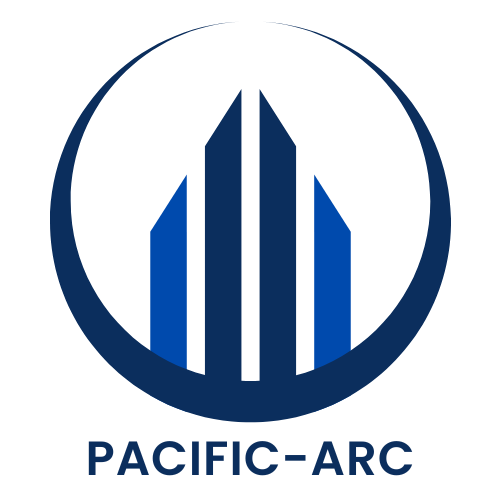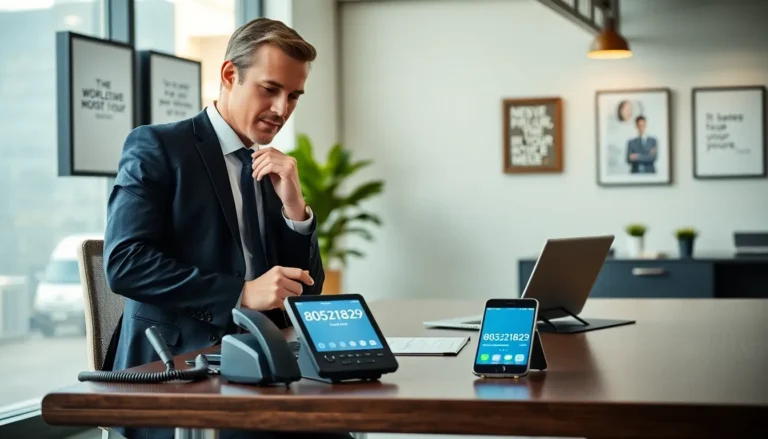Getting ready for a rental interview can feel like gearing up for a first date—nervous excitement mixed with a sprinkle of dread. After all, you’re not just trying to impress your potential landlord; you’re also hoping to secure a cozy new home. So why not treat this like a job interview? After all, showing off your best self might just land you that dream apartment.
Table of Contents
ToggleUnderstanding Rental Interviews
Rental interviews play a crucial role in securing a desirable apartment. Landlords often use these interviews to assess potential tenants based on various attributes.
Purpose of Rental Interviews
Landlords conduct rental interviews to evaluate both financial and behavioral aspects of applicants. They seek to confirm income stability, rental history, and overall reliability. Through these interactions, landlords aim to gauge compatibility between tenants and their properties. Establishing a positive rapport can also indicate how well tenants will maintain a rental space. Applicants should approach these interviews ready to present their strengths in a concise manner, showcasing their reliability and commitment.
Key Players Involved
In a rental interview, several key players are involved, including landlords, property managers, and prospective tenants. Landlords typically oversee the property and set the rental terms. Property managers, often acting as intermediaries, handle tenant screening and day-to-day operations. Prospective tenants bring personal information and rental requirements to the table. Each player’s role contributes to the overall dynamics of the interview process. Understanding these roles allows applicants to engage more effectively, enhancing their chances of a successful outcome.
Pre-Interview Preparation
Preparation for a rental interview involves specific steps that significantly enhance a candidate’s chances of success. When applicants understand what to expect, they can present themselves more effectively.
Researching the Rental Market
Candidates should analyze local rental listings to understand market trends. Knowing average rent prices helps establish a budget. Understanding neighborhood dynamics can assist in determining whether a location suits their lifestyle. Exploring nearby amenities adds to the ability to make informed choices. Reviewing past rental trends in specific areas reveals valuable insights into whether a location is likely to meet their needs. Collecting this data bolsters confidence during discussions with landlords or property managers.
Gathering Necessary Documents
Essential documents include proof of income, rental history, and identification. Income verification, such as pay stubs or tax returns, validates financial stability. Rental history showcases reliability as a tenant. Applicants should prepare references from previous landlords to support their applications. Organizing these documents can alleviate stress and foster professionalism in the interview. Having everything ready enables candidates to respond promptly to any inquiries. This preparedness reflects their commitment and seriousness in securing the desired rental property.
Common Questions to Expect
Preparing for common rental interview questions helps candidates showcase their strengths. Landlords commonly ask a range of questions to determine a tenant’s background and suitability.
Personal Background Questions
Landlords often start with personal background questions. Expect inquiries about current residency, prior rental experiences, and reasons for moving. Applicants might also encounter questions regarding household composition and pets. Candidates should be ready to discuss their work history and stability as well. These questions help landlords gauge reliability and personality compatibility.
Financial Questions
Financial questions are significant in a rental interview. Landlords typically want to know about current income and employment status. Applicants may face inquiries about credit scores and past financial challenges. Demonstrating financial preparedness is essential; providing clear evidence of income and savings reassures landlords of timely rent payments. A candidate’s ability to explain their budget and rental history thoroughly can reinforce confidence in their application.
Strategies for Success
Successful preparation for a rental interview involves multiple key elements that showcase a candidate’s suitability as a tenant. Candidates can enhance their presentation and demonstrate professionalism to make a positive impression.
Presentation and Professionalism
Dress appropriately for the rental interview, opting for neat attire that reflects professionalism. Candidates should arrive on time, demonstrating respect for the landlord’s schedule. A firm handshake and direct eye contact help convey confidence. Organizing necessary documents into a professional folder illustrates readiness and an eye for detail. Displaying a positive attitude throughout the interaction not only engages interviewers but also establishes rapport, key for fostering a good relationship with potential landlords.
Practicing Your Responses
Anticipating common interview questions allows candidates to prepare thoughtful responses. Reviewing personal rental history and specific reasons for choosing the property aids in building context during discussions. Role-playing with friends or family helps simulate the interview experience, allowing candidates to refine their delivery. Practicing answers to financial inquiries boosts confidence when discussing income and credit matters. Familiarity with typical landlord concerns creates opportunities to address them proactively, setting candidates apart.
Following Up After the Interview
Following up after a rental interview shows professionalism and reinforces interest in the property. Proactive communication can set candidates apart from others.
Thank You Notes
Sending a thank-you note is a smart move. A candidate should express appreciation for the landlord or property manager’s time. Mentioning specific points from the interview personalizes the message and leaves a lasting impression. Email is often preferred for its speed, but a handwritten note adds a personal touch. Both formats demonstrate consideration and thoughtfulness, enhancing candidacy.
Next Steps
Inquiring about the next steps in the rental process is essential. A candidate should ask when decisions are likely to be made or if additional information is needed. Clear communication keeps candidates informed and involved. Additionally, candidates can confirm their interest in the apartment during this conversation, reiterating their suitability. Staying engaged while waiting for feedback maintains momentum in the rental process.
Conclusion
Preparing for a rental interview is a vital step in securing a desirable living space. By taking the time to research the rental market and gather essential documents, candidates can present themselves as reliable and professional. Practicing responses to common questions and engaging in role-play can boost confidence and enhance delivery during the interview.
Following up with a thank-you note not only shows appreciation but also keeps the lines of communication open. This proactive approach can leave a lasting impression on landlords and property managers. With thorough preparation and a confident demeanor, candidates can significantly increase their chances of landing the perfect rental.





